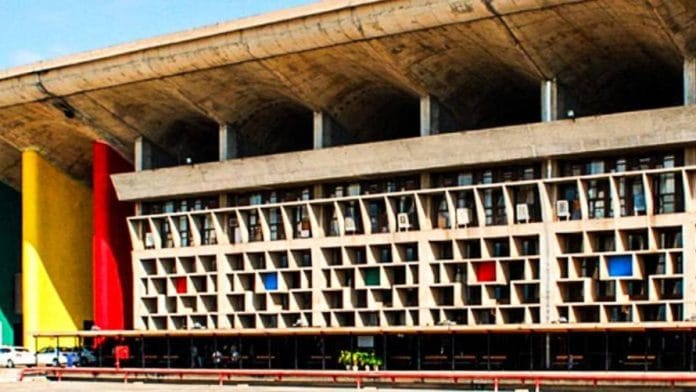Gurugram: The Punjab and Haryana High Court Friday emphasised the need for stricter scrutiny of foreign nationals before granting of visas, rather than indiscriminate bail denial to those found involved in unlawful activities.
Justice Anoop Chitkara, in a strongly worded order granting bail to Malaysian national Muhammad Jamil, accused in a Rs 2.8 crore cyber fraud case in Haryana’s Gurugram, asserted that authorities must exercise vigilance at the point of entry and noted that criminal prosecution within Indian jurisdiction could disrupt a foreign national’s life and aspirations.
The court stated that the cornerstone of an effective deterrence mechanism lies in rigorous pre-admission scrutiny—comprehensive background verifications before visa issuance and the immediate revocation of visas upon credible and substantial allegations.
Justice Chitkara observed that when a foreign national faces criminal prosecution within Indian jurisdiction, legal proceedings may tether them to the country, disrupting their academic aspirations, familial responsibilities, commercial enterprises and personal liberties.
He also emphasised the need for a speedy trial, stating: “Justice delayed is justice denied, but in the context of foreign nationals, justice prolonged is justice misplaced. Delayed trials and resultant legal limbo engender uncertainty in these individuals, compounding their fears within an unfamiliar jurisdiction and an unaccustomed legal system.”
The case against Jamil stemmed from a complaint by Gurugram-based businessman Satya Prakash Kothari, who was allegedly induced to invest Rs 2.8 crore in the stock market through WhatsApp messages from two mobile numbers. However, when he attempted to withdraw the funds from the app involved, his request was declined, leading to huge financial losses.
During investigation, it was found that the mobile numbers used in the alleged scam were registered in the names of one Muthu Bharthi and one Satish Kumar without their knowledge.
They were then found linked to one R. Surya, who was found to have fraudulently activated and issued multiple SIM cards and sold 120 of them to a person who then sold them to Malaysian nationals Muhammad Jamil and Kadar Gani Bin Naina Mohammad, according to the court order.
The police subsequently booked Jamil under the Bharatiya Nagarik Suraksha Sanhita, 2023, for cheating and under sections covering acts like fraudulent inducement, false promises and criminal conspiracy, as well as Section 66-D of the Information Technology Act.
Jamil was arrested on 18 December, 2024, from Trichy International Airport, Tamil Nadu.
The court, while granting bail to him, stated that there was sufficient prima facie evidence connecting the petitioner with the alleged fraud; however, considering that the petitioner was a first offender and pre-trial custody in relation to the amount received by him, it was not a case fit for further pre-trial incarceration.
The court directed that Jamil be released on bail upon furnishing a personal bond with identification details, including his passport number, permanent identification number, and mobile number. The court also instructed Jamil not to tamper with evidence or influence witnesses.
Referring to Supreme Court’s judgment last year in Frank Vitus vs Narcotics Control Bureau, the high court directed the deputy superintendent of police to send a copy of the bail order to the Foreign Registration Officer under Rule 3 of the Registration of Foreigners Rules, 1992. This, the court noted, would ensure compliance with the Foreigners Act, 1946.
The court acknowledged the broader implications of protracted legal proceedings and urged the trial court to expedite the case. “It is incumbent upon the judiciary to ensure the expeditious resolution of such cases, whether the accused is in custody or released on bail,” Justice Chitkara said.
(Edited by Nida Fatima Siddiqui)
Also Read: Why Punjab & Haryana HC fined itself Rs 25,000 over delay of a widow’s pension






